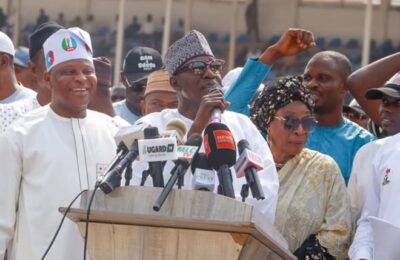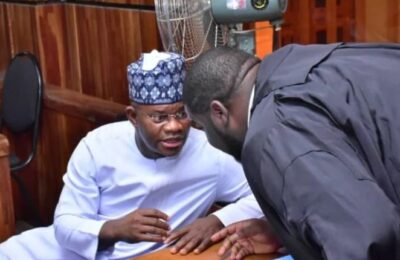By Musa Bakare.
Nigerian politics is never short of drama. With the 2027 presidential election still two years away, opposition coalitions are already posturing, plotting, and maneuvering. They view President Bola Ahmed Tinubu’s bold reforms and growing consolidation of governance as threats to their ambitions.
Former presidential aspirants and regional heavyweights are busy crafting alliances aimed at weakening Asiwaju Tinubu ahead of the next election. Yet, what Nigerians increasingly see is not sincerity of purpose but a desperation for power.
Despite the opposition coalition’s efforts, national enthusiasm appears to be waning. While some figures command youthful passion, their structures remain thin beyond social media and urban centers. Others, hovering around coalition-building, struggle to convince Nigerians that their ambitions are driven by patriotism rather than personal gain.
These maneuvers, set against Nigeria’s pressing challenges, seem hollow. Nigerians are weary of career politicians recycling themselves without offering a credible alternative vision. Many seem more focused on power than on progress.
While the opposition jostles and schemes, President Tinubu has chosen a different path. He is not in rivalry with anyone; rather, his focus remains firmly on governance and on rebuilding a nation battered by decades of economic mismanagement and short-sighted politics.
Asiwaju understands that history will not judge him by how many political enemies he subdued, but by the lives he touched and the structures he built. This is why, instead of chasing headlines, he has rolled up his sleeves to tackle Nigeria’s toughest challenges.
In his early days in office, President Tinubu ended the decades-long fuel subsidy scam, a move that drained trillions of naira from schools, hospitals, and infrastructure. This decision freed national resources for real development, signaling that Nigeria is ready to live within its means and invest in its future.
Another decisive reform was the unification of Nigeria’s multiple exchange rate systems. For too long, the Central Bank operated parallel rates that bred corruption, arbitrage, and discouraged serious investment. By dismantling these distortions, President Tinubu restored transparency and sent a clear message: Nigeria is open for genuine business, not financial racketeering. This reform breathed new life into the economy for both foreign investors and local businesses.
President Tinubu is not content with merely managing consumption; he is laying the foundation for production. The Lagos–Calabar Coastal Highway stands not just as a road project but as a symbol of connectivity, poised to boost trade, tourism, and industrial hubs across Nigeria’s coastal corridor.
Reviving Ajaokuta Steel and renewing investments in mining are deliberate steps to industrialize the nation, create jobs, and reduce import dependency. Expanding power generation and transmission networks is also part of his long-term vision to support manufacturing and digital economies. These projects are transformational, aiming to change Nigeria’s economic DNA from consumerism to productivity.
Moreover, President Tinubu has recognized the human cost of reforms. While structural adjustments are necessary, they must not leave the vulnerable behind. This is why his government has expanded social intervention programs: cash transfers to the poorest families, food security initiatives to stabilize prices, support for farmers to boost local production, and investments in education and healthcare to build human capital.
His goal is to institutionalize governance reforms, ensuring that Nigeria’s progress continues beyond 2031, regardless of who succeeds him. In stark contrast, the opposition appears united only in their desire to unseat President Tinubu, lacking any coherent vision beyond that.
Nigerians are not oblivious to these dynamics. Voters now demand performance over promises, seeking delivery instead of desperation. History proves that leaders who focus on reforms outlast those who chase political shadows. While the opposition shouts, Tinubu works; while others scheme, he builds.
As 2027 approaches, the choice before Nigerians is clear: between a president working tirelessly to rebuild the nation and a coalition of politicians more interested in seizing power than in solving problems.
– Musa Asiru Bakare, member of the APC and political analyst, writes from Lokoja, Kogi State.




